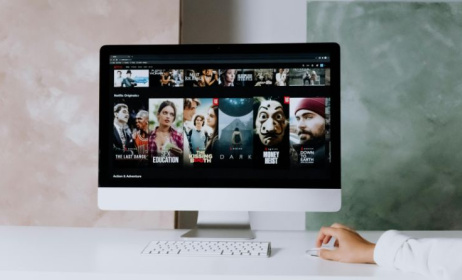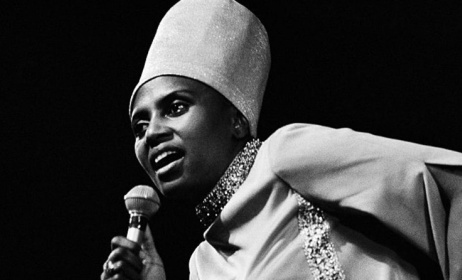'Zim slow to make arts industry changes'
The Zimbabwean government has been challenged to formulate policies that will safeguard artists and the arts industry. Since the change of leadership in late November last year, industry players still hope that President Emmerson Mnangagwa’s government will adopt policies and a legal framework that will revive the arts industry.
 Plot Mhako says although free speech is thriving in Zimbabwe, much needs to be done to support artists in the country.
Plot Mhako says although free speech is thriving in Zimbabwe, much needs to be done to support artists in the country.
The demand comes against the backdrop of recent claims by Minister of Sport, Arts and Recreation Kazembe Kazembe who told a local daily that his ministry was crafting policy intended to assist funding in the arts sector. It seems Kazembe’s assertions did not strike confidence with most artists who feel his proclamations are premeditated to lure the electorate ahead of general elections in July.
Music In Africa spoke to musicians, industry players and music critics about the challenges faced by the arts community, what the government is doing to transform the sector and the role of decentralisation in the arts.
Is the new government doing anything to transform the arts?
Despite the change of government, Zimbabwe’s music industry is still seeing slow growth due to lack of support from the Arts Ministry. Mnangagwa's government has made repeated claims that it will refashion Zimbabwe’s ailing arts but most artists are not convinced.
Journalist and music critic Plot Mhako said the government had not done anything to remould the industry since it assumed power from former president Robert Mugabe’s 37-year grip on power. “Like the former government, they have just been talking. The only notable positive is the general free speech that we now enjoy,” Mhako said.
Arts and culture advocate Chamunorwa Mashoko partly mirrored Mhako’s comments. “The new government has thus far not done much in the arts other than further place the arts as an afterthought,” he said. “However, the government has committed a handsome $15m for tourism transformation. The arts – though not directly connected – can significantly benefit if the government gets creative to invest ideas that further strengthen the relationship between arts and tourism. The arts drive tourism, so the new government has made significant efforts to transform the arts both negatively and positively.”
Bayethe Development Institute executive director Mandla Ncube said it was important to note that there was no arts industry in Zimbabwe. He challenged artists to create a viable industry and implored the government to enact policies that could support the sector. “The government has not deliberately invested in the arts since independence. The National Arts Council Act is that of the Rhodesian era and we are yet to see an arts, culture and heritage policy,” he said.
Music producer Mono Mukundu said the government had shown no tangible evidence of modifiying the industry and that the Arts Ministry was sweet-talking people into believing that something would be done. Mukundu said that “maybe it’s too early to expect too much”.
But musician and Zimbabwe Musicians Union chairperson Edith WeUtonga disagreed. WeUtonga said the newly appointed Kazembe met with artists to discuss the industry and map the way forward. “After the meetings with artists, the first activity kicked off in the form of a training workshop on intellectual property,” she said.
Which policies should the government implement?
Cultural policies play a pivotal role in benefiting the creative economy by providing general guidance on what steps the industry needs to take. Without a proper policy document, industries fall short of specific guidance towards implementing strategies to achieve their mission. According to many artists the arts industry in Zimbabwe lacks the proper cultural policy mechanism that mirrors their needs.
Mukundu says the lack of a sound cultural policy in the arts is negatively impacting the sector. “First of all, one of the biggest areas the previous government failed us is when they failed to act on piracy," he said. "They have to deal with that one first. The second thing is more coverage of local music and art in all media. There is too much coverage being given to foreign art, and remember, the public prefers what they are given by the media.”
Mashoko said the government should instigate tough laws on intellectual property and piracy. “The most pressing issue that is outstanding is an effective arts policy for Zimbabwe. Artists should be protected and they should be acknowledged,” Mashoko said. “Piracy has killed the creative writing and music industries – it’s now a wild jungle. The new leadership should formulate and implement a robust piracy policy. That way an industry can be easily created.”
Mhako echoed Mashoko’s sentiments and said that artists were losing millions of dollars as a result of piracy. He challenged the government to introduce independent radio and TV stations and abstain from giving licences to government-affiliated individuals.
“We have one TV channel. Its programming is uninspiring and that needs to be changed to allow more private players to stimulate growth and more content creation. They need to do away with the Broadcasting Services Act, the Access to Information and Privacy Act and the Censorship Act, or at least align them with the new Constitution.”
WeUtonga said the industry needed a local content policy that promoted and celebrated local artists. She said the policy should be enforced in terms of the protection of intellectual property.
What should be done to decentralise the arts?
Centralisation is a common feature that is hurting many of Zimbabwe’s industries, including the arts. While the capital Harare is still somewhat thriving in the arts, the city of Bulawayo in the south has become a shadow of its former self. As a matter of policy, decentralisation is vital in order to rid the country of its unilateral structure where decisions are made by a few. This has given rise to cronyism in the arts, especially in Harare, and in the process neglected artists living and plying their trade in other areas of the country.
“There is urgent need for devolution of government administration. Let the provinces run their own affairs, venues, radio and TV stations, newspapers and arts scenes, and not what we have now where nothing much happens outside of Harare and Bulawayo," Mhako said.
WeUtonga concurred saying the government should set up district centres and offices that manage young upcoming musicians and feature them on local platforms. “The government should facilitate venues where young artists can perform with the collaboration of local institutions,” she said.
Mukundu said: “Since independence, the government never built any infrastructure for the arts and provided very little support for the arts, so it’s actually a miracle that art has survived in Harare and Bulawayo.”
Ncube said: “I think artists are trying their best in all provinces but we lack the tools to market their works and activities to the rest of Zimbabwe.”
Mashoko argued that more activities in Harare and Bulawayo should be expected, as the two cities were receiving the majority of migrants from other parts of the country.
“You will discover that each province, tribe or race is represented,” he said. “In my opinion, citizens should be taught self-pride from a tender age. What I mean is that some minority communities may be dominated by design or by overlooking details when formulating policies. The current drive on establishing town- or city-based radio stations is one of the most important and effective ways to promote participation by every community.
“The continued promotion of vernacular languages cannot be overlooked. Arts programming is already decentralised. The National Arts Council Act just needs to be capacitated. Artists really need some skills and funding.”
What measures should be put in place to revive the music industry?
Asked what changes she would effect if afforded an opportunity to work in the Ministry of Arts, WeUtonga said she would advocate for a standalone ministry and make sure that people who handled arts matters were trained. “I would create funding systems that enable musicians to get travel grants," she said.
Mhako said his first move would be to make staff changes in the ministry. “We need new drivers who understand global creative dynamics and arts management,“ he said.
Mashoko said creating and implementing new policy would benefit artists in the country, while Mukundu said he would call for stiff penalties for music pirates and give 99% airplay to local music.
Ncube said he would introduce tax reductions and abolish of the National Arts Council Act as a means to resuscitate the industry.































Comments
Log in or register to post comments